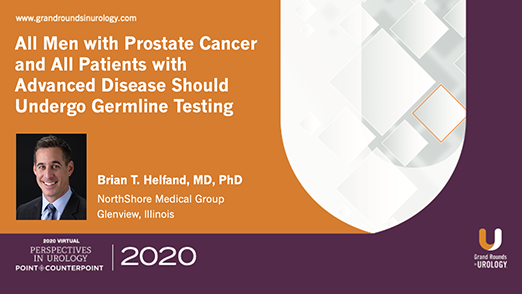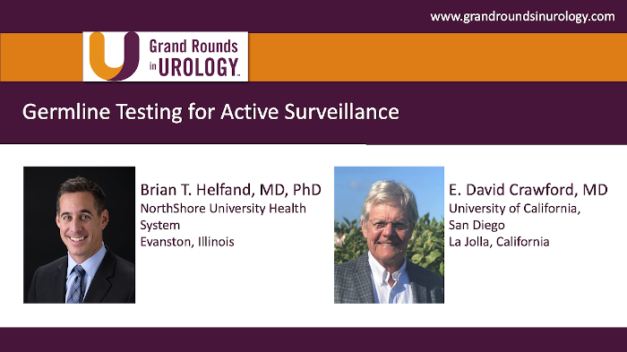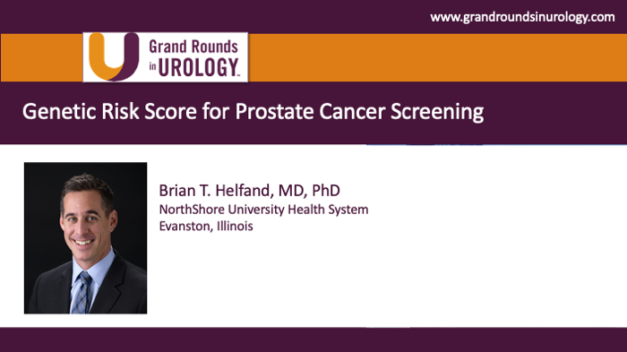All Men with Prostate Cancer and All Patients with Advanced Disease Should Undergo Germline Testing
Brian T. Helfand, MD, PhD, Chief of the Division of Urology and the Ronald L. Chez Family and Richard Melman Family Endowed Chair at NorthShore University HealthSystem in Evanston, Illinois, takes the pro side in a point-counterpoint debate on the merits of germline testing for all patients with prostate cancer, from the screening stage to the advanced treatment stage. Dr. Helfand argues that germline testing is beneficial during screening since the identification of rare pathogenic mutations can indicate which patients are at high risk for more aggressive prostate cancer. Germline testing for patients with localized disease is also useful since if a patient has a genetic variant it is more advisable to proceed to definitive treatment with surgery or radiation as opposed to putting them on active surveillance. Dr. Helfand concludes by observing that it can be particularly useful for patients with advanced disease to undergo germline testing since some genetic variants are associated with increased response to certain treatments, such as PARP inhibitors and platinum-based therapies for men with DNA damage repair mutations and immunotherapies for DNA mismatch repair mutations.
Read More



